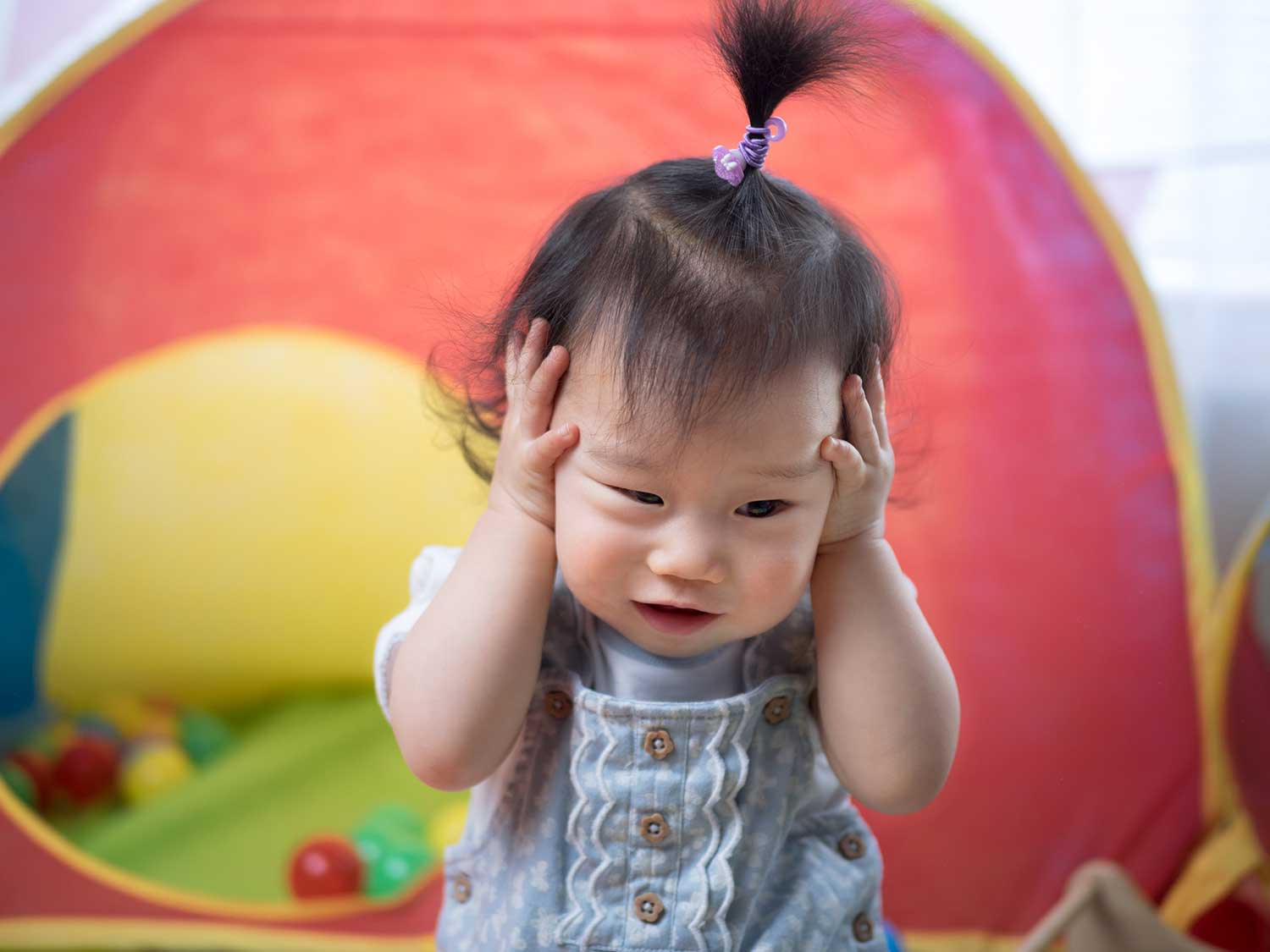How does your child express frustration? There can be a wide range, from temper tantrum-like behavior to avoiding tasks that could lead to failure.
For instance, four-year-old Sylvia throws the game pieces, crumples the paper, and kicks the wall. She screams: "I'm never going to be able to do this!" In contrast, Brian shows no interest in books and ignores any art materials around the house. He is a social, athletic boy, a great pal and player at home and at school. But he does seem to avoid many of the activities most children his age love. Ariana works hard on a drawing, then quietly pushes it away when it is only partly finished. She erases her name until the paper begins to tear then leaves the table and picks up a book to read. She's mature socially and has advanced language skills. Yet she is more and more hesitant to try new activities.
All these children are expressing frustration, but they express it in different ways. Frustration is the tense, unhappy feeling that results when you can't do something you should be able to do or want to do. An adult may feel moderately frustrated, acknowledge it, and decide to temporarily leave a task, get help with it, or try another approach. These are good strategies for children to use, but first, children must learn to recognize and accept the feeling. To understand what is causing it, they must also develop enough impulse control to hold back from an intense immediate response.
For Sylvia, frustration quickly turns into anger directed at the task (or materials): "I hate this baby game!" or "Crayons are dumb!" A child might direct this anger at her parents or teacher: "I'm never going to do that, and you can't make me!" Sometimes a child will direct her frustration at herself: "I'm so stupid" or "I hate the way I write. My letters are ugly!"
Then there are the more subtle expressions of frustration, as in Brian's avoidance of anything to do with reading and art. Since these areas are especially hard for Brian, he tends to avoid them. Unfortunately, he also avoids the experiences that could eventually help make tasks such as recognizing letters easier for him.
Ariana's frustration has different roots from that of the other two children. Her perfectionism, which is related to her pleasure in her achievements and in her striving to be grown-up, leads her to try tasks that are too difficult. She then fails to meet her own overly high standards. After making repeated attempts that don't seem to work, Ariana stops trying. Like Brian, she pays for this by missing out on helpful, pleasurable learning experiences and adds to her own selfdirected pressure.
Most children go through peaks of frustration between the ages of one and three. They are discovering that there is so much they want to do but cannot or may not. Young children often express their frustration in tantrums. At that point, many of them learn the word frustrated, and parents and teachers help them to find compromises and alternativesand, hopefully, to develop at least some degree of patience.
In the preschool years, further sources of frustration emerge: comparisons with peers, new expectations, and observations of older children (especially siblings) and adults. A child may be prone to frustration if he has minor delays in some developmental area, if he has easily succeeded at many things and does not remember the process of learning them, or if he is developing a somewhat perfectionistic personality style.
How to Help Children Handle Frustration
- Identify the way your child expresses frustration and the activities (or social situations) that tend to elicit it.
- Provide alternatives to unacceptable expressions of frustration toward oneself and others.
- Explain that everyone feels frustrated sometimes. You might want to give an example from your own life.
Talk about the process everyone goes through of being not able to do something and then practicing and getting better at it. As an example, you can describe for your child how she learned to walk: At first she couldn't stand up; then she stood up and fell down a lot; then she tried a step and fell, and so on. If your child has learned to ice skate or to ride a bike, remind her of the process she had to go through.
Finally, help your child develop a strategy of taking one small step at a time in approaching new things. Engage your child's teacher as a member of the team, if appropriate. (Sometimes the task is relevant to home only.)
Remember: Give lots of encouragement for small accomplishments. When your child reaches a plateau with a new task, celebrate how far she has come. Reassure her that in her own time, things will become easier and frustration will diminish, reappearing occasionally as a signal of her hard work.
What If There's a Change in How Your Child Handles Frustration?
Perhaps your child always cheerly attempted new things but has suddenly started reacting with reluctance and grouchiness. You notice that she is bursting into tears even at very minor setbacks. Or maybe you've noticed a consistent pattern of frustration that seems to be hindering your preschooler's pleasure in dooing things.
In cases such as these, look for causes. When a child suddenly seems to have difficulty dealing with frustration, she may feel that expectations have become too high for her. This could be at school or at home. The child with the consistent pattern of frustration may be living with a fear of failure. If you think about your child's life and talk with her about her concerns, you should be able to find the roots of the problem. be sure to share your insights with your child's teacher.
Jan Drucker, Ph.D., is a professor of psychology and director of the Child Development Institute at Sarah Lawrence College in Bronxville, New York.
